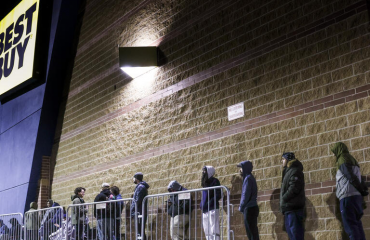The Costly Delay Of 5G Technology – Forbes
The advent of 5G cellular networks holds the promise of transforming the U.S. economy in ways that most of us cannot currently conceive—if it is allowed to transpire: A last minute complaint by the Federal Aviation Administration (FAA) has forced the Federal Communications Commission (FCC) and wireless companies to postpone a nationwide rollout of the service to early next year, and more baseless FAA interventions and delays may be in the offing.
The FAA’s objection to the 5G rollout is that it may create problems with altimeters on some airplanes. Last week the FAA issued a directive stating that the rollout of the 5G network would result in planes being delayed and the FAA could take further action; United Airlines CEO Scott Kirby told a Senate Commerce Committee hearing that the interference could result in as much as five percent of their planes being delayed.
However, the agency’s complaints may have more to do with interagency machinations than safety.
The FAA’s complaint comes at the very end of a careful process that began well over a decade ago. Research on the development of 5G began in 2008 and the FCC began preparing for the transition seven years ago, and those preparations included a myriad of tests to ensure that 5G networks would not impact entities using adjoining spectrum.
The problem with the delay is that benefits of nationwide 5G service are enormous: Besides allowing us to download services a couple of orders of magnitude faster than is currently the case (downloading a movie will go from seven minutes to just six seconds, for example), the lightning-fast connection would allow all sorts of other business applications to be borne that would make our lives better in ways that many of us cannot yet conceive of. It is a necessary step for driverless cars, for example.
The costs of delaying the broad-based rollout of 5G would be enormous: one study estimates that the benefits of 5G deployment approach $300 billion in the next six years alone.
ATT T and Verizon began rolling the service out in 2019 in dense urban communities, and they originally planned to roll out the service nationwide this month. Both have spent tens of billions of dollars to acquire the bandwidth and build the necessary towers and other infrastructure to launch the network. And tech companies such as Apple AAPL and Samsung have produced a new generation of phone that can access 5G networks as well.
It was the FCC’s well-regarded engineering staff that looked at the possible ramifications of the new technology, and it could detect no reason to believe that it would interfere with altimeters. And it is the FCC, not the FAA that has jurisdiction over this. That is a good thing, because this is precisely what its staff specializes in.
On the other hand, the FAA’s big engineering process of this century—the Nextgen Air Transportation System, intended to improve navigation and increase capacity at U.S. airports—is years behind schedule and billions of dollars beyond its original budget with no end point in sight.
A recent letter signed by six former FCC Commissioners declared that it was puzzling that the FAA raised this objection so late in the process and encouraged the two agencies to work closely together to quickly resolve the issue.
Delaying 5G rollout has an equity issue as well: right now people in major metropolitan areas have access to 5G, but it’s people who live in the broad middle of the country that are waiting on it. And besides exacerbating the digital divide, the delay also means that the relatively few with access to it are hurt as well: without a broad customer base, the applications that depend on it won’t make much economic sense.
The FAA’s last-minute action is a manifestation of a broader regulatory problem in that agencies have trouble taking into account the costs or benefits of an action that may go beyond their own narrower jurisdiction.
The Biden White House should take more aggressive steps to resolve this dispute as by most accounts it has tried to referee the dispute but without success. Part of the problem lies in the fact that it has yet to formally nominate an Administrator for the Office of Information and Regulatory Affairs, an agency within the OMB tasked with reviewing regulatory actions who serves as a traffic cop for precisely such interagency disputes.
It is hard to overstate the importance of 5G to our nation’s future standard of living, and further delays would cost U.S. households dearly by delaying innovations that could improve their health, safety, convenience, and living standards.



